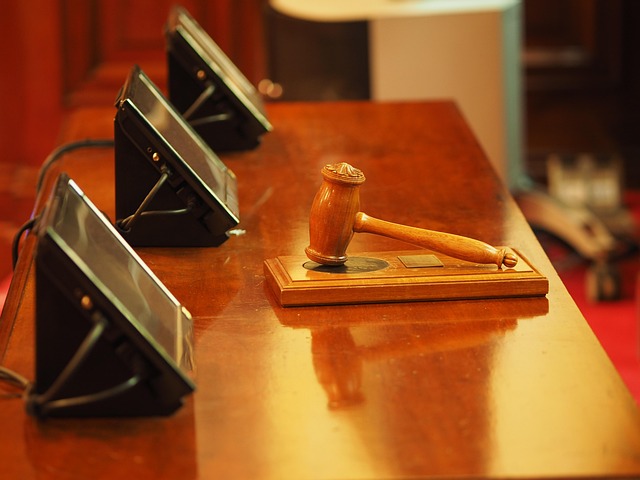Regulatory Fraud Laws protect public trust and market integrity by defining and penalizing fraud, including Examples of Workplace Rights Violations like corporate malfeasance, discrimination, wage theft, and insider trading. These laws carry high stakes, with companies and individuals facing legal battles. Employers and employees must work together to prevent fraud through stringent policies, training, internal controls, transparency, and active reporting without fear of reprisal.
In today’s complex business landscape, understanding regulatory fraud laws is paramount to protect employees’ rights. This article delves into “Understanding Regulatory Fraud Laws: A Legal Perspective,” providing insights into how these laws safeguard workers from violations. We explore “Examples of Workplace Rights Violations” through compelling case studies, highlighting the impact and consequences of fraud on employees. Additionally, we offer practical strategies for employers and employees to prevent fraud, ensuring a fair and secure work environment.
- Understanding Regulatory Fraud Laws: A Legal Perspective
- Examples of Workplace Rights Violations: Case Studies
- Impact and Consequences of Fraud on Employees
- Preventing Fraud: Strategies for Employers and Employees
Understanding Regulatory Fraud Laws: A Legal Perspective

Regulatory Fraud Laws are designed to protect against misdeeds that undermine public trust in institutions and threaten the integrity of markets. From a legal perspective, understanding these laws involves grasping how they define fraud, delineate responsibilities, and prescribe penalties for violations. For instance, these laws often encompass a wide range of activities such as falsifying records, making false statements to regulatory bodies, or engaging in insider trading.
When it comes to examples of workplace rights violations, many scenarios fall under the umbrella of regulatory fraud. These can include corporate malfeasance like accounting manipulation or bribery, as well as individual actions such as securities fraud. High-stakes cases involving white collar and economic crimes often pit corporate and individual clients against one another, with each side seeking legal counsel to navigate complex regulations and mitigate potential liabilities.
Examples of Workplace Rights Violations: Case Studies

Workplace rights violations can manifest in various forms, each with its own impact on employees and the respective business. Examples include discrimination based on race, gender, or age, where companies might unfairly treat or dismiss workers protected under anti-discrimination laws. Another common issue is failure to pay minimum wage or overtime compensation, as seen in high-stakes cases where large corporations have been found guilty of widespread misclassification of employees, denying them rightful benefits.
Moreover, the non-disclosure of hazardous working conditions, such as unsafe machinery or toxic substances, poses significant risks to workers’ health and safety. These violations often result in severe penalties for businesses, reflecting an unprecedented track record of corporate accountability. Each case study serves as a lesson for organizations to prioritize ethical practices and ensure compliance with labor regulations to avoid legal repercussions and maintain a positive reputation.
Impact and Consequences of Fraud on Employees

When fraud occurs within a company, it isn’t just shareholders and investors who suffer; employees often bear the brunt of the consequences. Fraud can lead to significant financial losses for the business, which may result in layoffs, reduced benefits, or even company closure. This directly impacts employees’ livelihoods and their ability to provide for themselves and their families. Moreover, working in a fraudulent environment can create psychological stress and damage an employee’s trust in their employer.
Examples of workplace rights violations due to fraud include unfair compensation practices, misclassification of employees as independent contractors, and the misuse of company funds by executives. These actions not only violate legal and ethical standards but also undermine the respect and dignity of workers. Employees may feel vulnerable and unsure of their future when they perceive their respective business practices to be unethical or dishonest, especially if for his clients’ benefit.
Preventing Fraud: Strategies for Employers and Employees

Preventing fraud is a collaborative effort between employers and employees, each playing a crucial role in maintaining ethical practices within the workplace. Employers should establish robust anti-fraud policies and provide comprehensive training to their staff, covering various scenarios including financial misdeeds, data manipulation, and insider trading. Implementing strong internal controls, regular audits, and promoting a culture of transparency can significantly deter fraudulent activities.
Additionally, employees are encouraged to report suspicious behavior or potential violations of workplace rights without fear of retaliation. Examples of such violations include discrimination, harassment, unfair labor practices, and misuse of company resources. By actively participating in the investigative and enforcement process at all stages, from reporting to jury trials (if necessary), both employers and employees can contribute to a complete dismissal of all charges related to fraud or workplace rights violations.
Regulatory fraud laws are essential tools in protecting employees from rights violations, ensuring fair treatment in the workplace. By understanding these laws and implementing preventive strategies, both employers and employees can navigate complex legal landscapes more effectively. The examples of workplace rights violations highlighted in this article underscore the importance of staying vigilant against fraud. Through proactive measures, organizations can foster an environment where integrity thrives, ultimately enhancing employee trust and satisfaction.






